While many of us have heard about hemp-derived cannabinoids such as delta-8, delta-10, and delta-O, there isn’t much information out there yet about HHC or Hexahydrocannabinol. We know that hemp-derived HHC is not THC, but it offers a mild experience similar to that produced by the THC cannabinoid.
Since HHC products are so new to the legal cannabis market, we are still finding more information regarding its effects, benefits, and legality in the United States. Read on as we cover the basics of hemp-derived cannabinoids and HHC.
So, What exactly is HHC?
HHC, short for hexahydrocannabinol, is a hydrogenated form of THC that naturally occurs in the cannabis plant. HHC is categorized as partially synthetic when chemically hydrogenated from the THC cannabinoid.
Is HHC natural or synthetic?
In short, Both. HHC can be considered a natural or synthetic compound, depending on its origins. Small concentrations of HHC can be found in the cannabis or hemp plant. Trace amounts of HHC appear when THC oxidizes into CBN or aged cannabis over a long time.
However, since the HHC content is low, cultivators cannot viably make HHC products from it, so they use a process called hydrogenation to convert THC into HHC. Since hydrogenation chemically alters THC’s natural state, HHC is now considered semi-synthetic.
How is HHC made?
There are several different ways to make HHC. Older methods required using acids to convert THC to HHC. New techniques use either terpene conversion or catalyst hydrogenation.
Because THC itself is illegal under federal law, HHC must be derived from something other than THC for the manufacturing plant to be able to sell HHC to legal market retailers.
So, manufacturers convert hemp-derived CBD to HHC using synthetic gastric juice. This creates 9α-OH-HHC, 8-OH-iso-HHC, as well as delta 9 THC that must be separated from the HHC and thrown away before being sold as hemp products.
HHC History and Processes
Roger Adams is the chemist who identified CBD in the 1940s and created hexahydrocannabinol around the same time. He added hydrogen molecules to delta-9-THC during the hydrogenation process, which converted a THC molecule into HHC, a hemp-derived cannabinoid.
For reference, changing vegetable oil into margarine involves a similar approach. Seventy years later, there are over ten versions of HHC, but still minimal research about its effects, safety, and benefits.
As for the chemical makeup, HHC differs from THC because it has two extra hydrogen atoms and no double bonds. For HHC, the double bonds in THC are broken down and replaced with hydrogen. This process changes how the inactive hhc molecules bind to the CB1 and CB2 receptors in the body and also allows it to be more potent and long-lasting. HHC is also more resistant to U.V. light and extreme heat.
Effects of Hexahydrocannabinol
An HHC high is similar to that of THC, however, it can be a little less effective than delta 9, yet stronger than delta eight and delta 10. The effects typically include:
- euphoria
- mental stimulation
- mood boosting
- increases motivation and focus
- creativity boosting
- helps with anxiety and depression
- relieves chronic pain
- assist with muscle spasms
- inflammation-reducing
HHC Potency
It’s said to be approximately seventy-five percent of the potency of delta-9 THC, so it’s stronger than delta-8 and delta-10 but not as strong as regular THC marijuana. Typical doses of HHC can produce a euphoric high similar to THC but with more relaxing and soothing qualities similar to delta-8.
Medical Uses for HHC
The following are potential medicinal benefits of HHC, though further research is needed to provide sufficient anecdotal evidence supporting HHC’s therapeutic qualities:
- Reduce anxiety
- Relieve chronic pain
- Mood booster
- Relaxing and Soothing Qualities
- Reduce inflammation
- Nausea and vomiting Alleviation
- Better quality of sleep
Potential Risks
Some mild adverse effects from HHC have been reported. They are similar to the side effects experienced by taking a high dose of THC:
- Anxiety
- Confusion
- Dizziness
- Dry Mouth or Eyes
- Increased appetite
- Increased heart rate
- Insomnia
- Paranoia
Hemp-derived Cannabinoids
Cannabinoids are found in hemp and cannabis plants and are produced naturally by the human body. We have an endocannabinoid system (ECS) that internally produces cannabinoids. These compounds are essential to maintaining internal balance through many different body systems.
Hemp-derived cannabinoids interact with our ECS to help maintain functional balance through messenger molecules and receptors. Their beneficial effects can help to regulate sleep, energy, cardiovascular function, reproduction, relieve stress, manage anxiety, chronic pain relief, motivation, appetite, and digestion.
Delta 8, Delta 9, and Delta 10 THC
Several variations of THC, called chemical analogs, work to distinguish various types of THC from one another. These unique THC compounds are all slightly different. These differences impact how the human body’s endocannabinoid system reacts to them. Some analogs are federally illegal, while another active ingredient may be allowed.
Unlike CBD, delta-8 THC produces euphoric effects similar to but milder than delta-9 THC, the well-known psychoactive compound in cannabis. Delta-8-THC occurs naturally and is an isomer of delta-9 THC, and the difference between the two molecules is simply the location of a carbon double bond.
Delta-8 THC’s popularity began when an oversupply of CBD extracted from hemp grown in the United States caused the price of CBD to fall dramatically. Producers began looking for ways to convert CBD into delta-8 THC. The cannabis industry marketed the resulting products to those looking for pain relief and stress management, those not looking for an intense high, and those living in illegal areas.
Similar to delta-9 THC, delta-8 at a typical dosage level can provide feelings of body relaxation and pain relief, but with milder psychoactive effects. For people who don’t want to experience a high, the lower potency of Delta-8 THC may be beneficial. However, it will produce more mental effects than CBD oil and other CBD products.
There’s a lack of research and empirical evidence regarding Delta-8’s impact on your overall mental health. Many survey participants recently reported using Delta-8 and their prescription medications (with medical authorization) to help with depression and substance use disorder symptoms.
Delta 9 THC is a significant cannabinoid found in abundance in cannabis. Extraction is usually relatively cheap and straightforward as a result. It is derived explicitly from marijuana plants.
When someone talks about THC, they are more than likely referring to Delta-9 as it is considered “regular THC.” It is a cannabinoid molecule in cannabis that is the primary psychoactive ingredient within the plant.
Many weed users have expressed that delta-9 THC products have helped improve sleep quality, treat body aches, improve appetite, decrease physical discomfort, etc. Delta 9 is commonly used for its potential medical benefits, reducing symptoms of anxiety and PTSD and helping people combat symptoms of glaucoma, seizures, and other chronic conditions.
Unlike many other cannabinoids, the THC cannabinoid interacts with the CB1 receptors located in the human brain. This area is responsible for many mental processes, including decision-making and retaining memories.
This powerful compound derived from cannabis plants provides effects such as excitement, euphoria, focus, calm, and more. The results can be intense for some cannabis users, while others enjoy certain strains’ relaxing qualities or creativity boosts.
Delta-10 is a cannabinoid found in trace amounts in the cannabis plant. Like delta 9 THC, these cannabinoids interact with the ECS so they can get you moderately high, but it is much less potent. It is better compared to Delta-8 THC in its effects.
Delta-10 is commonly processed from hemp-derived CBD, as is delta-8. Because hemp is federally legal in America, delta-10 is considered legal in all 50 states. However, specific state laws have outlawed delta 8- and delta-10 independently.
Delta 10 THC tends to have mild relaxing, calming qualities that are mainly body-centered. Many people use it to feel comfort and stress relief at the end of a long day or when feeling anxious.
Delta 10 is psychoactive but significantly less potent than regular THC and milder than delta 8 THC. Its uplifting effects make it popular for people who want to get high and get things done; the experience is often reported to feel creative, focused, and energetic.
HHC vs. HHC-O
HHC-O is basically a more potent version of HHC. The “O” simply means that HHC was combined with acetic anhydride to boost the potency of the product.
What is the purest THC?
Isolated THCA and CBD are the purest concentrate forms of cannabis available, with potency levels reaching around 99.9%. The cannabis plant contains over five hundred active and inactive compounds that take the form of many different microscopic shapes and structures.
Is HHC safe to make at home?
Not really. Due to the chemicals and procedures needed to convert into HHC, it’s best left up to scientists and licensed laboratories due to the risk of explosion. This could change in the future, but for now, let’s leave it to the professionals.
How Does HHC Compare to THC and THCA?
When comparing the THC and THCA differences, it’s important to understand that THC is the psychoactive compound found in cannabis, while THCA is its precursor, which needs to be heated in order to become psychoactive. HHC, on the other hand, is a synthetic cannabinoid with effects similar to THC, but less potent.
Is HHC legal in the U.S.?
Many online retailers sell hhc products such as hhc oil, hhc flower, or vape carts, but what is the true legal status? Industrial hemp is legal in the U.S., thanks to the Farm Bill of 2018.
Hemp has a similar chemical makeup in looks to Indica and Sativa, but it doesn’t produce much THC causing little to no psychoactive effects or a positive drug test. Hemp products are used in the textile industry and for the production of alternative cannabinoids, such as CBD and CBG.
The legal limit of THC for hemp-derived products is 0.03 percent. While there are no official guidelines when it comes to HHC, it does technically fall under the hemp-derivative category and is in turn legal under federal law. For now, anyways.
HHC and Drug Tests
So far, HHC does not typically register on most workplaces’ typical twelve-panel drug screen. This is a potential factor in the new popularity of HHC vapes and edibles because delta-8 and delta-10 will cause positive urine or blood drug tests.
However, the jury is still out on these hemp-derived THC alternatives. Why? Because we are unsure if HHC products are actually federally legal, and since HHC metabolizes into 11-hydroxy-THC, which is tested on many THC drug tests.
Best HHC Gummies on the Market
Here are the top five brands for HHC gummies and edibles:
- Strawberry Burst High Potency HHC by TRĒ House
- Just Delta – HHC – Peach Rings
- Hydro Sour HHC by Delta Extrax
- Europa by Moon WLKR
- Mango & Chill – HHC Gummies by Urb Finest Flowers
Where to Buy HHC Vape Cartridges and Other THC alternatives
Finding reputable HHC and THC alternative retailers with the state of federal marijuana legality can be tricky since they are relatively new products in the cannabis industry.
Here are a few trusted brands that sell HHC vapes and edibles:
- 3Chi HHC Vape Cartridge- Northern Lights
- HHC VAPE CARTRIDGE 0.5ML: FULL-SPECTRUM
- HHC VAPE CARTRIDGES PINEAPPLE EXPRESS
- Binoid Premium HHC Vape Cartridges
- Finest Labs HHC Vape Cartridges
Final Thoughts
There’s still a lot we don’t know about HHC, but so far, it seems like a reasonably safe and effective option to regular THC and other THC alternatives. Leafy Mate can help you search for reputable online and local dispensaries and retailers than can connect you with HHC and delta products. Remember to check back frequently for the latest information on HHC legality and uses and always follow local laws to remain safe.

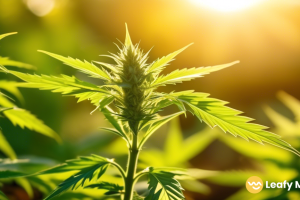
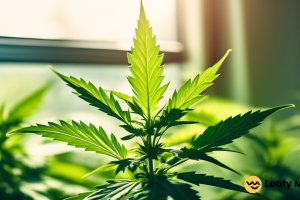
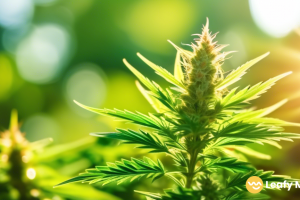




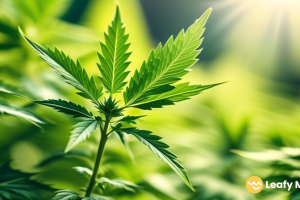
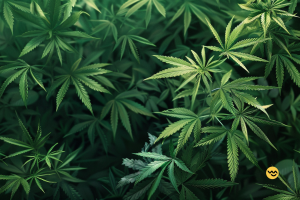
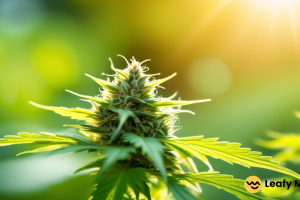
Leave a Reply